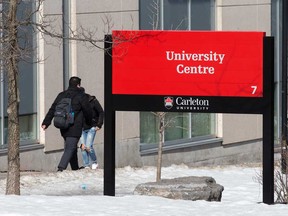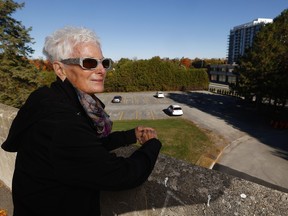Politics
Young Canadians Hesitant to Enter Politics, Warns Sergio Marchi

Former Liberal cabinet minister Sergio Marchi has raised concerns about the increasing reluctance of young Canadians to pursue careers in politics. Speaking in Ottawa, Marchi revealed that in his university courses on politics, he often sees only a few students express interest in public life. “When I ask how many are considering a career in public life, I’m surprised if two or three hands go up,” he stated.
Marchi, who served as minister for international trade from 1997 to 1999 and later as ambassador to the World Trade Organization and the United Nations, believes this trend poses a significant risk to the future of the political landscape. He emphasized the need for diverse voices in government, saying, “You can’t have our politicians be just old white men. We need the energy and idealism of the youngsters.”
Young People Seek Alternatives to Traditional Politics
In his new book, Pursuing a Public Life, Marchi shares his political journey and offers guidance to young individuals aspiring to enter federal politics. He argues that the issue of youth disengagement is not limited to Canada but is a global phenomenon. Many young adults seem more inclined to contribute to the “global good” through avenues such as diplomacy or non-governmental organizations, rather than seeking elected office.
He points out that the current political climate, characterized by invasiveness and toxicity, deters many potential candidates. “Clearly they’re put off with the calibre of our political culture,” Marchi noted. “They find it too invasive.” He believes that change must originate from current elected officials, who need to be aware of the increasingly toxic environment and work to improve it.
A recent study from Carleton University and the University of Ottawa supports Marchi’s observations. The 2024 paper highlights that young people are significantly under-represented in parliaments worldwide, primarily due to their limited presence in the candidate pool. The study concluded that political parties often struggle to find young individuals willing to run, and may underestimate their electoral potential, leading to a lack of nominations.
Barriers to Youth Engagement in Politics
Daniel Stockemer, a politics professor at the University of Ottawa and co-author of the study, explained that young people encounter systemic barriers that hinder their ability to pursue political office. He emphasized the challenge of incumbency, stating that youth representation in Canadian politics has not seen significant growth in the past 50 years. “It’s very difficult to enter the system because there are so few spots that are open,” he remarked.
Challenges faced by young candidates are compounded by perceptions that the political system does not cater to their needs. Jake Sawatzky, a 25-year-old who was elected as the Liberal MP for New Westminster-Burnaby-Maillardville in the 2025 federal election, echoed this sentiment. He pointed out that many young people feel the system is not built for them. Sawatzky hopes that the recent election of younger MPs will inspire others to engage in politics.
“The decisions made by politicians directly impact our everyday lives,” Sawatzky said. He encourages young Canadians to consider roles beyond Parliament, such as city councillors or school board trustees, as well as involvement in non-profit organizations.
Political apathy among youth is further exacerbated by the education system, according to Jaden Braves, CEO of Young Politicians of Canada. Braves, a 17-year-old, argues that civic literacy is insufficiently addressed in schools, leading to a lack of encouragement for students to pursue careers in public service. “There isn’t an emphasis in high school to understand the full nature of it,” he noted.
Braves also highlighted the stigma surrounding political office, where the negative experiences of elected officials deter young individuals from entering the field. He remarked that young people increasingly view politics as a domain reserved for those with substantial financial resources. “When politics is a game only some get to play, it becomes repulsive for young people,” he said.
Ultimately, Marchi fears that if current trends continue, future generations may find themselves without a voice in governance. “While technology evolves, and AI takes on more roles, I hope it will not replace the need for good people to make decisions on our behalf,” he concluded.
-

 World3 months ago
World3 months agoScientists Unearth Ancient Antarctic Ice to Unlock Climate Secrets
-

 Entertainment3 months ago
Entertainment3 months agoTrump and McCormick to Announce $70 Billion Energy Investments
-

 Science3 months ago
Science3 months agoFour Astronauts Return to Earth After International Space Station Mission
-

 Lifestyle3 months ago
Lifestyle3 months agoTransLink Launches Food Truck Program to Boost Revenue in Vancouver
-

 Technology2 months ago
Technology2 months agoApple Notes Enhances Functionality with Markdown Support in macOS 26
-

 Top Stories7 days ago
Top Stories7 days agoUrgent Update: Fatal Crash on Highway 99 Claims Life of Pitt Meadows Man
-

 Sports3 months ago
Sports3 months agoSearch Underway for Missing Hunter Amid Hokkaido Bear Emergency
-

 Politics2 months ago
Politics2 months agoUkrainian Tennis Star Elina Svitolina Faces Death Threats Online
-

 Technology3 months ago
Technology3 months agoFrosthaven Launches Early Access on July 31, 2025
-

 Politics3 months ago
Politics3 months agoCarney Engages First Nations Leaders at Development Law Summit
-

 Entertainment3 months ago
Entertainment3 months agoCalgary Theatre Troupe Revives Magic at Winnipeg Fringe Festival
-

 Politics1 week ago
Politics1 week agoShutdown Reflects Democratic Struggles Amid Economic Concerns





















